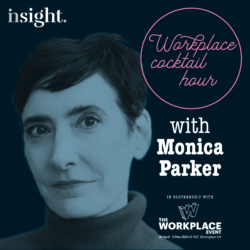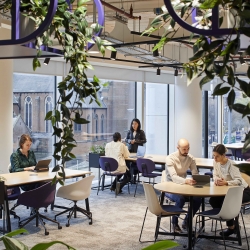April 24, 2025
Remote work can boost innovation, but culture eats it for breakfast
 The effects of remote work on innovation can vary dramatically depending on the cultural context of a country, according to new research by Durham University Business School. Analysing data from over 8,000 firms across 21 countries, the study suggests that remote working significantly enhances innovation in cultural contexts characterised by low power distance, high indulgence, and notably, short-term orientation. It found that companies based in European countries, like Lithuania, Latvia and Hungary, experienced far greater innovation gains from flexible working compared to companies in more hierarchical and long-term planning cultures such as the Middle East and African region. (more…)
The effects of remote work on innovation can vary dramatically depending on the cultural context of a country, according to new research by Durham University Business School. Analysing data from over 8,000 firms across 21 countries, the study suggests that remote working significantly enhances innovation in cultural contexts characterised by low power distance, high indulgence, and notably, short-term orientation. It found that companies based in European countries, like Lithuania, Latvia and Hungary, experienced far greater innovation gains from flexible working compared to companies in more hierarchical and long-term planning cultures such as the Middle East and African region. (more…)



















 Monica Parker joins Mark Eltringham to share an Old Fashioned while discussing how to find wonder in the everyday, the limits of workplace design, our renewed obsession with productivity, how to achieve flow states in a world of distractions and what it means to be truly happy. There’s not much workplace news around right now as people are still finding their feet after Christmas, so we also explore some lessons we might take from the Post Office scandal about how organisations go wrong and the role of human nature in creating toxic cultures.
Monica Parker joins Mark Eltringham to share an Old Fashioned while discussing how to find wonder in the everyday, the limits of workplace design, our renewed obsession with productivity, how to achieve flow states in a world of distractions and what it means to be truly happy. There’s not much workplace news around right now as people are still finding their feet after Christmas, so we also explore some lessons we might take from the Post Office scandal about how organisations go wrong and the role of human nature in creating toxic cultures. 
 A new poll of workplace leaders suggests there is an environment of unconscious fear in modern-day leadership, leading to toxic culture, stunted growth, performance and productivity, and decision inertia. The global study of 2,500 emerging leaders in corporate businesses by consultant
A new poll of workplace leaders suggests there is an environment of unconscious fear in modern-day leadership, leading to toxic culture, stunted growth, performance and productivity, and decision inertia. The global study of 2,500 emerging leaders in corporate businesses by consultant 











May 9, 2025
Ping pong, perks, pizza and beanbags won’t get you a better workplace culture
by Daniel Snell • Comment, Flexible working, Wellbeing, Workplace, Workplace design